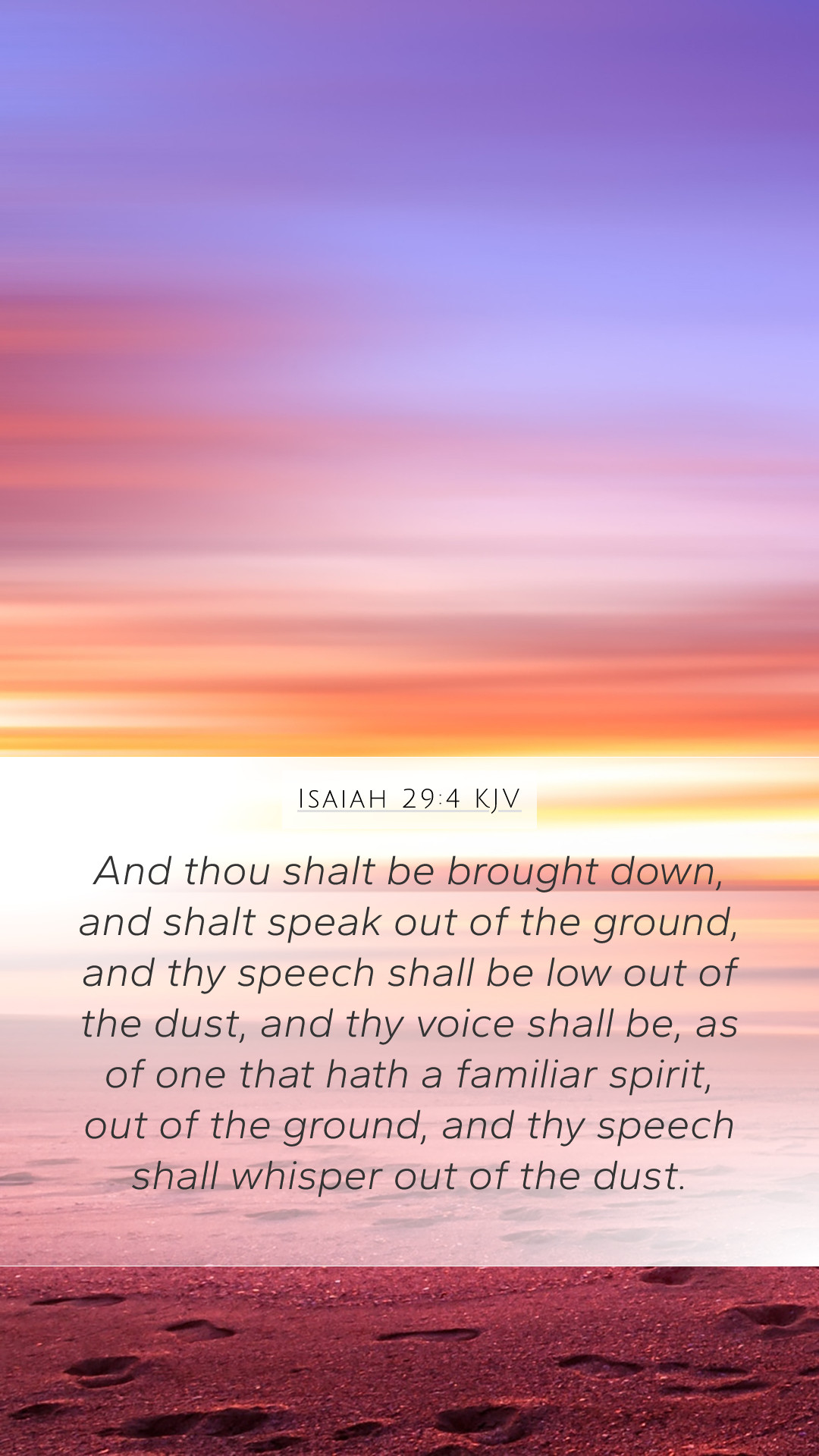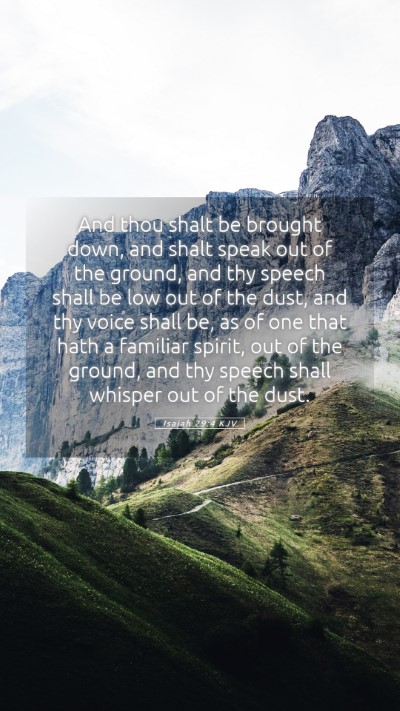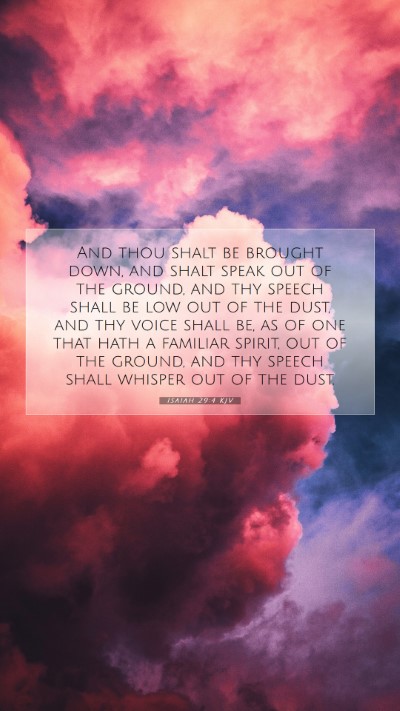Understanding Isaiah 29:4
This passage from the Book of Isaiah provides significant insight into the divine judgment that the people of Israel were facing, showcasing a prophetic vision whose meaning resonates through time. Below, we will explore the meaning of Bible verses and provide Bible verse explanations for Isaiah 29:4, incorporating interpretations from esteemed commentaries.
Verse Text
Isaiah 29:4 (KJV): "And thou shalt be brought down, and shalt speak out of the ground, and thy speech shall be low out of the dust, and thy voice shall be, as of one that hath a familiar spirit, out of the ground, and thy speech shall whisper out of the dust."
Bible Verse Meaning and Interpretation
Isaiah 29:4 speaks poignantly of the fate of Jerusalem and its inhabitants at the hands of God. Here is a summary of insights from Matthew Henry, Albert Barnes, and Adam Clarke that delve into the Bible verse understanding:
-
Matthew Henry:
Henry emphasizes the dramatic imagery used in this verse, which portrays a fall from grace and a state of despair. The inhabitants will be humiliated, resembling those who are dead or lowly. This reflects God's judgment on their pride and unfaithfulness.
-
Albert Barnes:
Barnes elaborates on the idea of speaking "out of the ground." This phrase signifies the depersonalization and degradation that the people will experience. They will communicate from a place of humility, indicative of their loss of status and the consequences of their actions.
-
Adam Clarke:
Clarke links this verse to the condition of the people when they find themselves in despair and deprivation of divine favor. The mention of a "familiar spirit" suggests a reliance on medium-like practices rather than faith in God, signifying a great departure from true spiritual devotion.
Scripture Analysis
This passage is rich in Bible study insights relating to themes of judgment, humility, and the consequences of sin. The phrase "whisper out of the dust" conveys a sense of defeat, suggesting that the once-vibrant voices of worship are now reduced to whispers of sorrow. The Biblical exegesis here invites readers to reflect on their own spiritual state in comparison to the people of Judah.
Application of Isaiah 29:4
For modern readers, the applicability of this verse is significant. It evokes questions about spiritual pride and humble submission before God. Reflecting on how to interpret Bible verses can lead one to contemplate their own reliance on God’s grace versus their own understanding.
Related Bible Cross References
- Psalm 22:15: "My strength is dried up like a potsherd; and my tongue cleaveth to my jaws; and thou hast brought me into the dust of death."
- Job 17:16: "They shall go down to the bars of the pit, when our rest together is in the dust."
- Isaiah 57:15: "For thus saith the high and lofty One that inhabiteth eternity, whose name is Holy; I dwell in the high and holy place, with him also that is of a contrite and humble spirit."
Conclusion
Isaiah 29:4 holds profound significance as it encapsulates a message of warning and the serious ramifications of straying from God's ways. The analysis provided through these public domain commentaries aids us in garnering a deeper understanding of Scripture while offering insight into our own spiritual journeys.
By integrating these insights into our Bible study groups, we can foster richer discussions about themes relevant both in historical context and present-day faith lived out in society.


